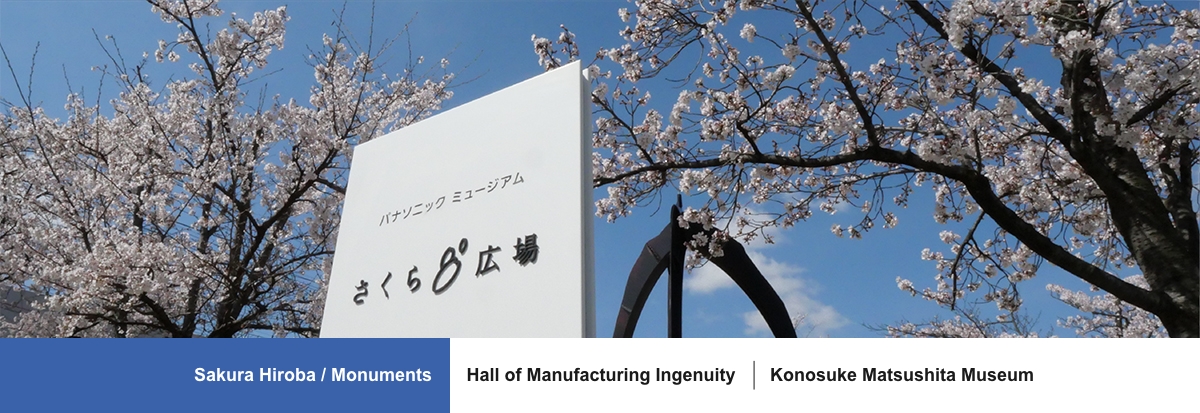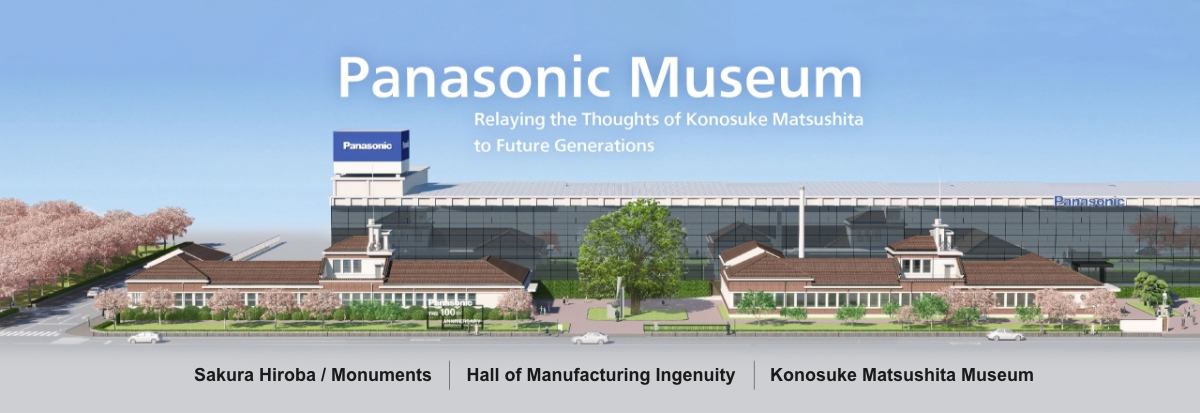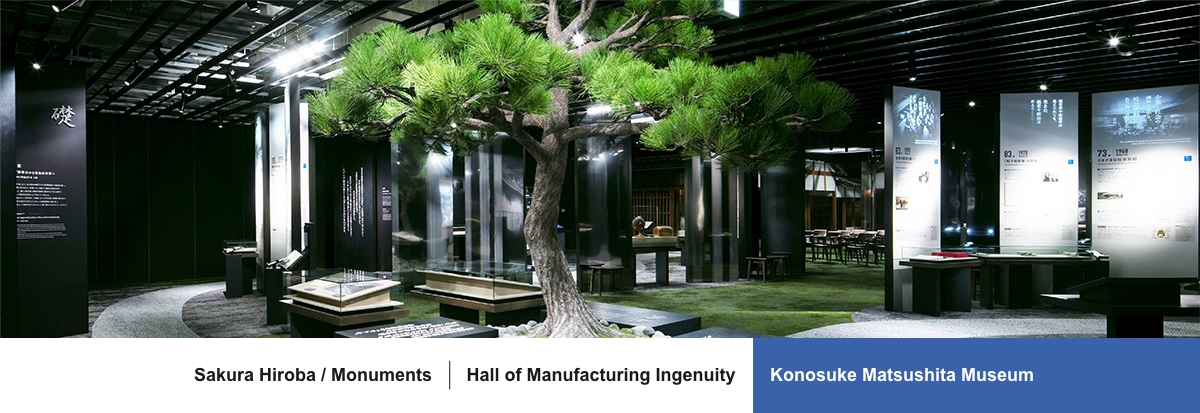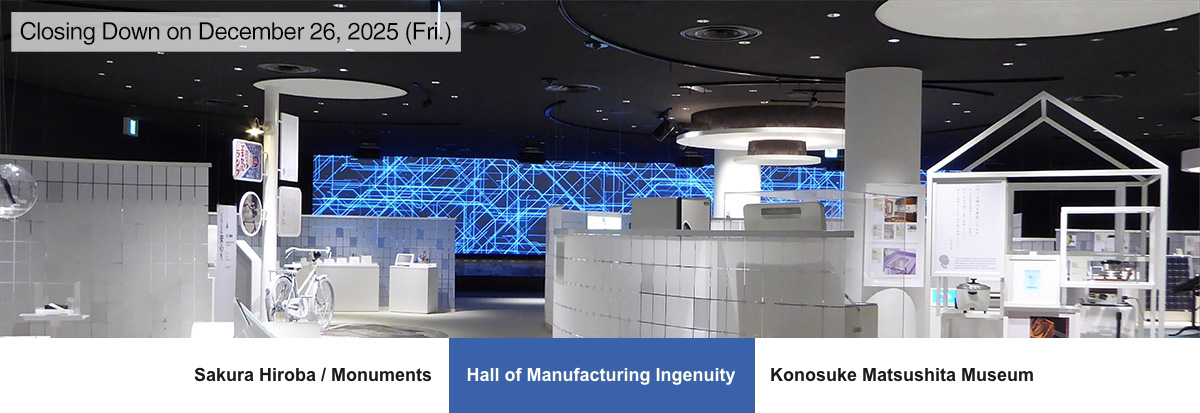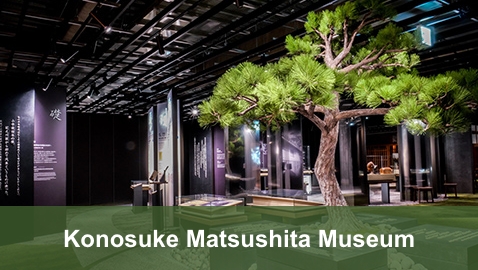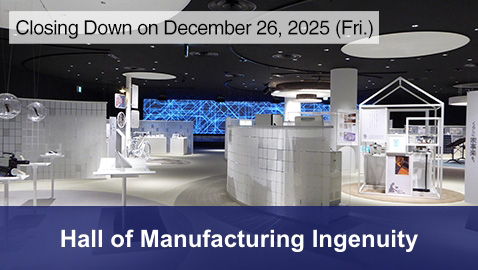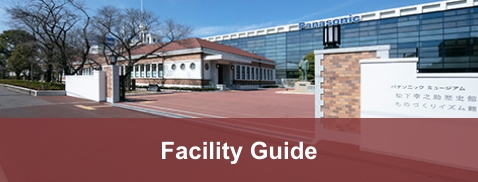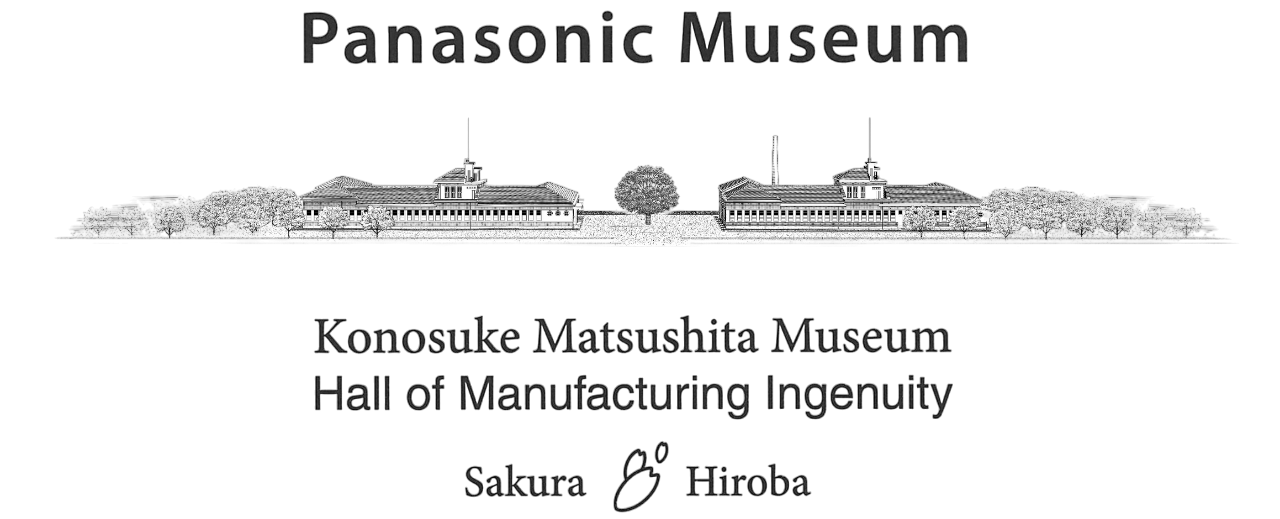Hall of Manufacturing Ingenuity will close down on December 26, 2025 (Friday)
Infomation:
If you wish to schedule a facility tour for a group of 10 or more (up to a maximum of 40), a reservation is required in advance. Please apply using the link below.
*Japanese version only.
https://holdings.panasonic/jp/corporate/about/history/panasonic-museum/facility/group.html
Calendar





Greetings
The founder of Panasonic, Konosuke Matsushita,
established a management philosophy stating that a company is a public entity of society,
and put into practice his belief that a company must contribute to society through its business operations.
At the same time, he strove to go beyond the conventional role of a businessman and
realize his desire for the prosperity and happiness of humankind.
The founder of Panasonic, Konosuke Matsushita, established a management philosophy stating that a company is a public entity of society, and put into practice his belief that a company must contribute to society through its business operations.
At the same time, he strove to go beyond the conventional role of a businessman and realize his desire for the prosperity and happiness of humankind.

More than 100 years have passed since the company's foundation in 1918.
During that time, later generations have continued to inherit the ambitious goals,
approach and philosophy of Konosuke Matsushita,
who continually strove for A Better Life, A Better World, and created numerous products and technologies,
fostering a corporate culture unique to Panasonic.
The Panasonic Museum was established to convey our appreciation for society's support
over the past 100 years and to pass down the passion and
spirit of Panasonic to future generations by showcasing Konosuke Matsushita's words
and Panasonic products from the past.
In this place where everyone can learn, we hope you will find some clues for your own approach and philosophy.
Society, economics, industry. In this multi-faceted era of change,
Panasonic hopes to continue to be a company that contributes to the development of society.
We sincerely hope that you will be able to come and visit us. We look forward to seeing you.
More than 100 years have passed since the company's foundation in 1918.
During that time, later generations have continued to inherit the ambitious goals, approach and philosophy of Konosuke Matsushita, who continually strove for A Better Life, A Better World, and created numerous products and technologies, fostering a corporate culture unique to Panasonic.
The Panasonic Museum was established to convey our appreciation for society's support over the past 100 years and to pass down the passion and spirit of Panasonic to future generations by showcasing Konosuke Matsushita's words and Panasonic products from the past.
In this place where everyone can learn, we hope you will find some clues for your own approach and philosophy.
Society, economics, industry. In this multi-faceted era of change, Panasonic hopes to continue to be a company that contributes to the development of society.
We sincerely hope that you will be able to come and visit us. We look forward to seeing you.
Facility Guide
Address:
1006 Oaza Kadoma, Kadoma-shi, Osaka, 571-8501, Japan
Access:
About a 2-minute walk from Nishisanso Station on the Keihan Line
Admission fee:
Free
Hours:
10:00 a.m.–5:00 p.m.
Closed:
Sundays, Public holidays, Obon holiday and New Year holidays, Holidays set by Panasonic Museum
*Hours may vary during special exhibitions and events.
Parking:
Spaces for 10 cars and 4 large buses
*Parking is limited. We recommend the use of public transportation.
Bicycle parking:
Limited space available
Contact:
Tel.: +81(0)6-6906-0106
